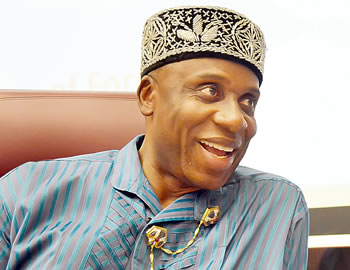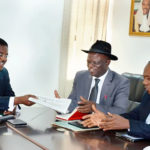During the celebrations, the federal government and many Nigerians took time to recall how far the country had gone in the last 57 years with different people reeling out different tales both good and bad that had confronted its citizens and various sectors.
The country’s aviation sector which happens to be one of the major sectors sustaining the economic power of Nigeria was not left out of the celebration.
To the different key players across the aviation sector, Nigeria @57 meant different things depending on how they have fared within the years courtesy of how the independence had either positively or negatively impacted their lives as professionals in the sector.
There is no doubt that the anniversary was worth celebrating for the former Nigerian Airways workers whose long years of sufferings and struggle for their entitlements 13 years after the liquidation of the defunct carrier finally yielded fruits under the government of President Muhammadu Buhari who approved the payment of N45 billion for them.
Also on the positive side, is the ability of the country through the Nigerian Civil Aviation Authority (NCAA) to retain the United States Category One status which is the highest safety standard recognized by America.
The retention of the category One which has shored up the safety standard in the country’s aviation sector is responsible for the increase in the number of foreign airlines still wanting to operate into the country.
For the first time in over thirteen years, the Murtala Muhammed International airport was certified both security and safety wise fit by the NCAA, a decision which will increase the value of the airport and will shore up the value of our infrastructure there.
The beauty of the certification of the number one gateway is that it came at a time when the government has approved the concessioning of the four international airports across the country which when fully certified by the NCAA by the end of the year will add value to them and subsequently attract credible investors to bid for the airports.
Obviously, while the sector has been able to record some successes, there are still some key players who believed that the country’s aviation sector still have a long way to go.
To such people, if after 57 years of gaining freedom, the country’s domestic airlines are still down below the ladder in view of many reasons ranging from weak economic policies, hostile environment to lack of protection from the government, there was nothing to celebrate.
The unending promises from the government to float another national or flag carrier 13 years after the unjust liquidation of the defunct Nigeria Airways is a bad tale which has been traced to the exploitation of Nigerians in the hands of the foreign carriers.
Fifty-seven years after the country’s independence, it is still very worrisome that Nigeria has not been able to tidy up its Bilateral Air Services Agreement (BASAs) with over 78 countries around the world which put Nigeria at a very disadvantaged position.
Before the 58th anniversary, it is hoped that the infrastructural deficiency at the international airports especially would have been tackled by the would be investors through the concessioning programme and nothing should stop the government from floating a new national or flag carrier for Nigerians before the next anniversary.
There is an urgent need for government to review its present lopsided BASA agreements, unlimited entry points doled out to foreign carriers, expensive aviation fuel and double taxation to mention but a few which have greatly contributed to the weakness of the domestic airlines.
At 57, the country’s aviation sector should have been competing favourably with great countries of this world in view of the available resources and its strategic position coupled with its huge market and population. Nigeria still have a long way to go before the next anniversary.







